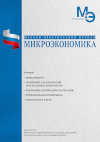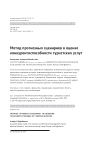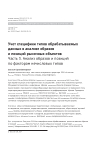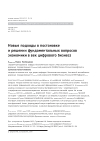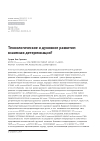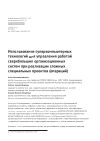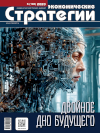Method of forecast scenarios in assessing the competitiveness of tourism services
DOI: 10.33917/mic-1.114.2024.68-74
The scientific article graphically displays the economic essence of the method of forecast scenarios in assessing the development of competitiveness of tourism services. Target (tactical) development blocks and target development scenarios based on the theory of even subsets have been identified. A matrix of alternative strategies and corresponding tourism growth scenarios at the meso-economic level have been developed: optimistic; pessimistic (risk assessment) and optimal scenario.
References:
1. Galiullin I.R. Innovative competitive advantages of service sector enterprises: macro, meso-level research. I.R. Microeconomics. 2017;6:68-73. (In Russ.).
2. Zhukovskaya I.V. Systematization of scientific approaches to managing competitiveness in the service sector: economic essence, criteria. Microeconomics. 2020;2:29-37. (In Russ.).
3. Leonov E.F. Increasing the competitiveness of small and medium-sized service enterprises based on the formation of institutional space: dis. Ph.D. econ. Sciences: 08.00.05. Leonov Egor Fedorovich. St. Petersburg, 2017. 206 p. (In Russ.).
4. Fatkhutdinov R.A. Managing the competitiveness of an organization. M.: EKSMO, 2005. pp. 542-543. (In Russ.).
5. Khusaenov R.R. Development of Innovative Infrastructure Services in The Conditions of Discreteness of Its Components. International Journal of Advanced Research in Engineering and Technology. 2020;11(3):276-291.


